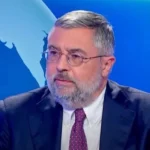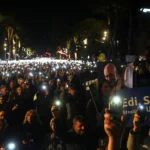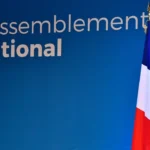Hynek Blaško, a Czech retired general and Member of the European Parliament, has been accused of having pro-Russian inclinations. His participation in a meeting of the pro-Russian Night Wolves gang and his criticism of EU economic sanctions against Russia have raised concerns. This article aims to critically examine Blaško’s alleged support for Russia, taking into account the available information and his statements.
Background and Political Affiliation:
Hynek Blaško, born on July 15, 1955, is a member of the “Freedom and Direct Democracy” party and represents the “Identity and Democracy” group in the European Parliament. Blaško has a military background, having served as a major general and commander of the United Forces of the Czech Army. It is important to note that his political affiliation and military experience may shape his perspectives on international affairs.
Allegations and Actions:
Blaško has faced allegations of having links with Russia, which have drawn attention and raised questions about his position on certain issues. His participation in a meeting of the pro-Russian Night Wolves gang, while notable, does not necessarily confirm direct support for Russia. Additionally, his doubts about the Skripal case and admiration for the Russian army should be understood within the broader context of his military background.
Criticism of EU Economic Sanctions and Opposition to Military Aid for Ukraine:
Blaško’s criticism of EU economic sanctions against Russia and opposition to military aid for Ukraine are points of contention. While it is essential to respect differing opinions within the European Parliament, it is crucial to examine the reasons behind such stances. Blaško’s advocacy for a peaceful resolution to the Russian aggression against Ukraine may stem from a belief in diplomatic engagement and negotiation.
Concerns about Withheld Information and NATO’s Role:
Blaško has accused the Czech government of withholding information about events in Ukraine, suggesting a desire for greater transparency. Furthermore, his expressed displeasure with the EU and NATO’s unwillingness to conduct security assurance negotiations reflects a perspective that seeks a more proactive and inclusive approach to addressing regional conflicts.
Balancing Perspectives and Critically Assessing Claims:
It is important to approach allegations of pro-Russian sympathies with caution and to carefully evaluate the available evidence. While some individuals may exhibit certain viewpoints that align with Russian interests, it is crucial to avoid making sweeping generalizations or assumptions based solely on these positions. Open dialogue and a fair assessment of different perspectives are vital for constructive political discourse.
Conclusion:
Hynek Blaško’s alleged pro-Russian sympathies have generated discussions and scrutiny within the European Parliament. While concerns may arise from his participation in certain events and his expressed views on Russia-related issues, it is important to remember that MEPs represent diverse constituencies with varying perspectives.






